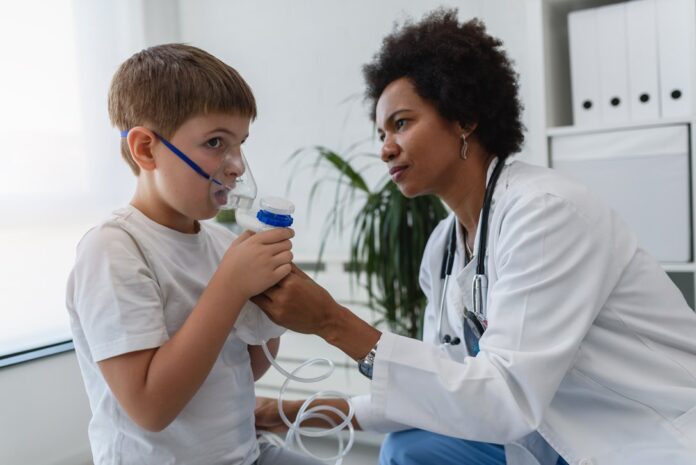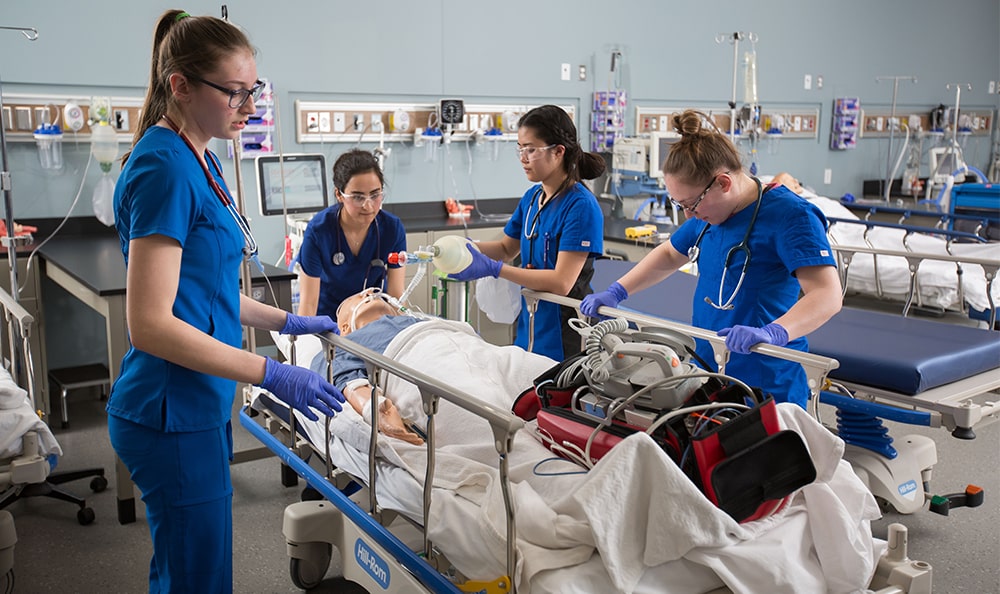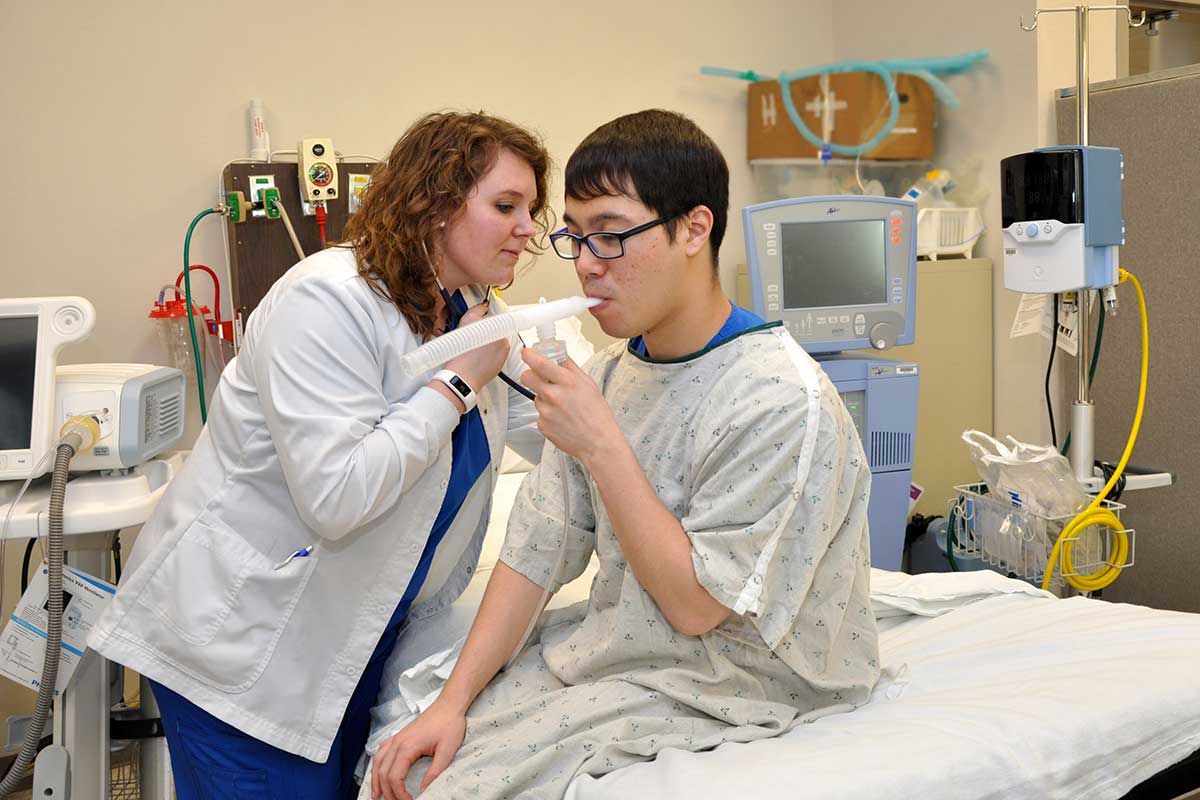
Many patients know what nurses do but are unfamiliar with the critical work that respiratory therapists (RTs) do every day. These vital healthcare professionals play critical roles in maintaining and improving patients with various lung problems, including COVID pneumonia, regular pneumonia, COPD, asthma, and more.
The next time you or a loved one is in the hospital, you’ll probably have a trained, professional respiratory therapist ensuring that your lungs are providing the oxygen you need to regain your health. How fortunate that respiratory therapists can earn their CEUs online so conveniently – visit this site to learn more.
Below are some of the ways that these dedicated professionals help their patients daily. For example, many RTs work in specialties where they help specialty patient populations.
Emergency Respiratory Therapy

This work occurs in a healthcare facility where RTs offer help with ER cases and help patients recover from car accidents, gunshot wounds, lung failure, heart surgery, and more.
Some respiratory therapists are helping doctors with complex thoracic surgeries; after all, the respiratory therapist usually has the most knowledge about the lungs and ventilators to ensure the patient maintains their breathing during the procedure.
RTs also play a vital role in emergency care treating pneumonia, which can be fatal for older, weaker patients with severe heart and lung ailments.
Pediatric Respiratory Therapy

These specialists focus on children and newborns with lung and heart problems. They may be employed by a hospital where they work with premature babies in the NICU. Some RTs in this field also work on an outpatient basis with adolescents and children.
Geriatric Respiratory Therapy

As we get older, our lungs age and change. Respiratory therapy can enhance breathing efficiency in older Americans. People over 65 are more likely to have complications from pneumonia and COPD, so it’s beneficial for RTs to work specifically with this vulnerable population.
Inpatient Therapy

Respiratory therapists do many things for adult patients staying in the hospital. The treatments you receive depend on how sick you are, your age, and why you’re having trouble breathing. Some of the things your therapist may use to treat you include:
- Intubate the patient by putting a tube through the mouth to the windpipe
- Monitor breathing and heart rate on the ventilator
- Take blood samples to monitor your oxygen levels and other factors
- Give you drugs through various inhalers to help with breathing and congestion
- Work with doctors to clear mucus from the lungs
- Check how well the lungs work, such as how deeply the patient can breathe
Outpatient Therapy
If you are being treated on an outpatient basis, your respiratory therapy professional may give you tests like what you’d have at the hospital, such as blood oxygen tests and lung function checks.
Also, the RT will help you manage your disease or illness by teaching you to prevent symptoms, follow a treatment plan when you go home, and know when you need to call a doctor.
Working With Other Healthcare Professionals

Clinical studies show that the role of respiratory therapists is changing. While RTs have traditionally worked in hospitals and critical care, there are more RTs working in community clinics to help with asthma, COPD, and pulmonary rehabilitation.
Some healthcare facilities have respiratory therapists and nurses work as a team to assess, treat, and support patients that have had COPD. The therapist and nurse review the patient’s medical history, risk profile, medications, and immunizations to determine the next treatment steps.
One patient in the above clinical study noted that in her case, the nurse and RT looked at her entire health picture. They discussed the woman’s diabetes and treated her as a whole patient and not just a pair of lungs. She noted that the workers helped her to make major life changes that transformed her health. The woman concluded her comments in the study by saying she was no longer scared of her COPD diagnosis after working with them.
Respiratory Therapists Vital In The Fight Against COVID-19

According to the American Association for Respiratory Care, the work of RTs is vital to the health of the United States. Respiratory therapists have dedicated themselves to help patients and communities during the challenging COVID-19 pandemic.
The AARC stresses that RTs across the nation have worked hard during the pandemic to help patients sick with this illness. And in many cases, they have put themselves at risk of infection, mainly when there were short PPE supplies.
RTs have been carefully trained to help people suffering from many pulmonary diseases, including COVID. They have played a vital role in assisting patients in surviving and recovering. As more patients get the COVID vaccine, respiratory therapists will continue to play a vital role in helping patients ill with the disease to return to health as soon as possible.
For example, even when patients recover from COVID, they can suffer from pneumonia and other respiratory illnesses and they’ll need specialized care from RTs to get back on their feet.
Ventilator Skills And Expertise Save Lives
One of the most critical ways that RTs help patients and those ill with COVID, in particular, is they are the only healthcare professionals who are clinically trained and educated to use mechanical ventilators. Nurses and even doctors know little about the daily operation of ventilators, so RTs are in a position to make a life-saving difference in the life of a critically ill COVID patient.
It’s estimated that 5% of COVID patients cannot breathe independently and must be intubated and put on a ventilator temporarily. Skilled RTs calculate the proper ventilator settings to give the patient what they need to breathe. It’s critical to set the pressures correctly; ventilators can damage lung tissue, so RTs must carefully balance getting the patient precious oxygen without causing chronic lung damage.
Respiratory therapists do critical work daily to make a difference in their patients’ lives. If you or a loved one entered a hospital very sick with a respiratory illness, a respiratory therapist almost certainly did critical work that aided in your full recovery.














